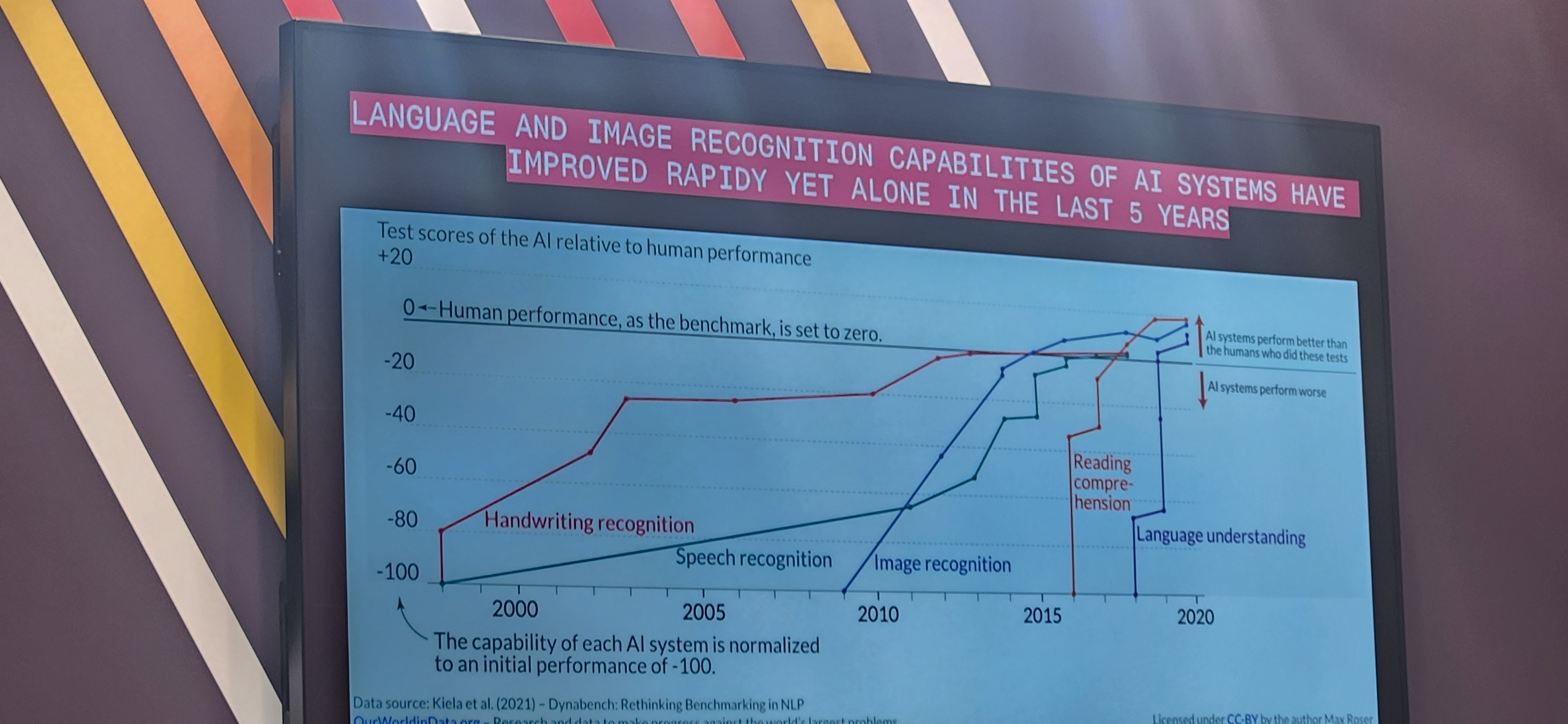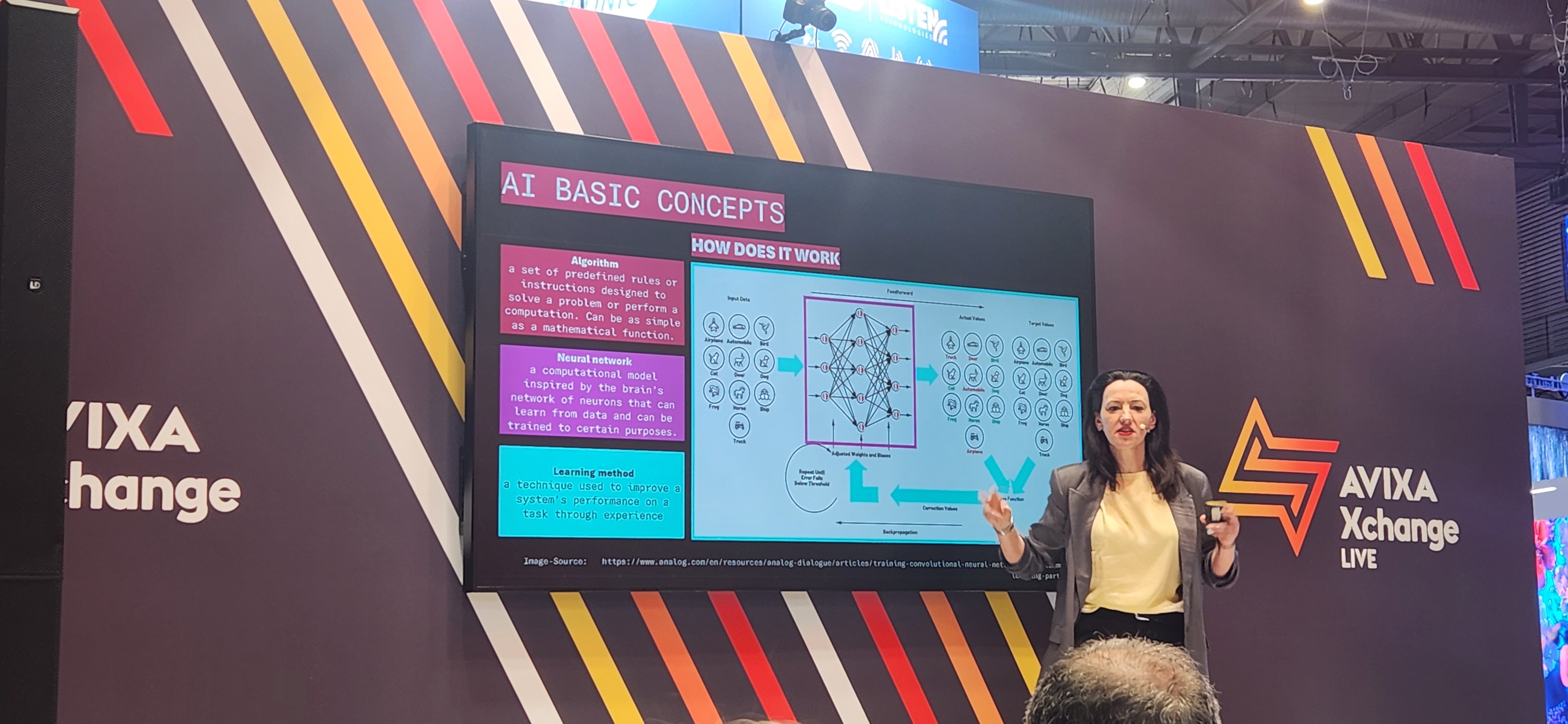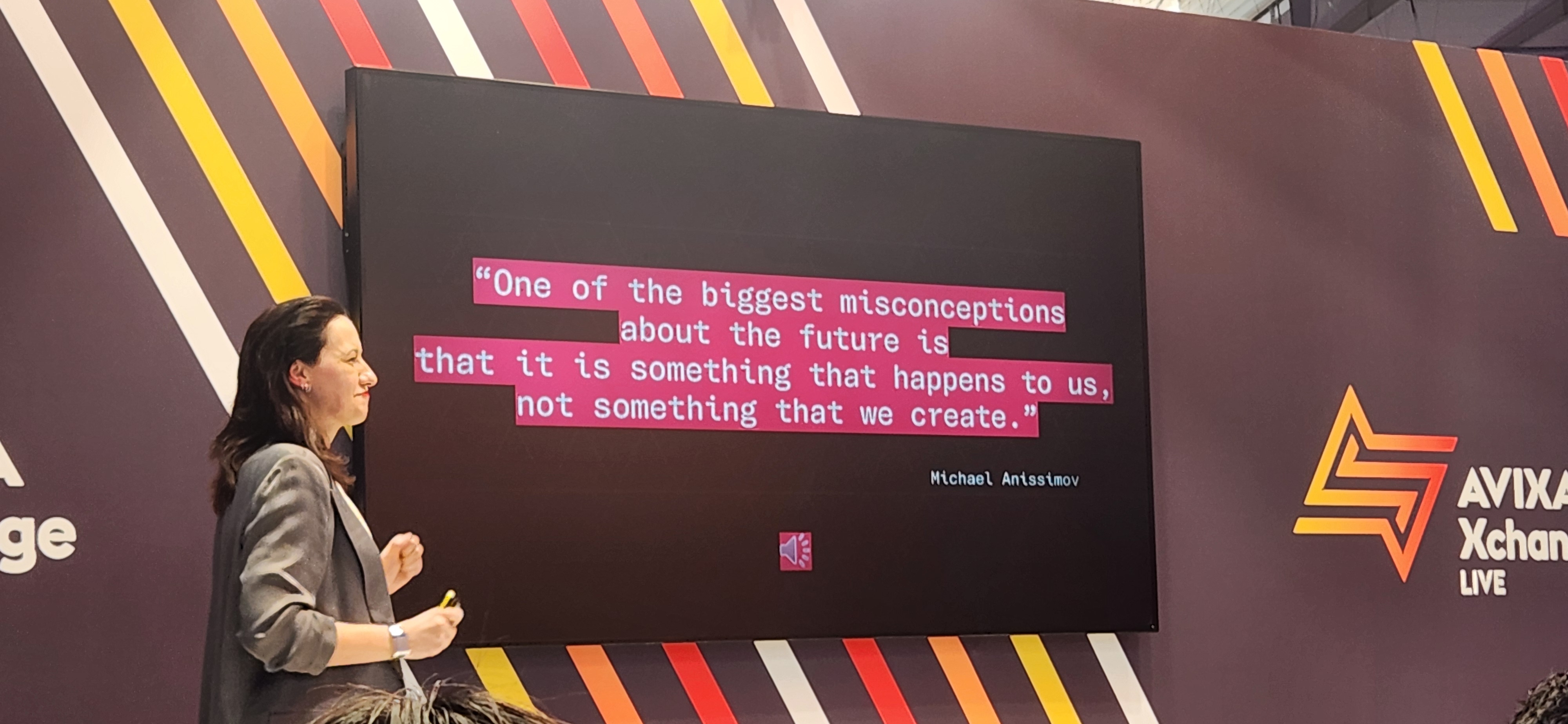ISE Insights: AI in Audio Production? Try Out These Tools

Talk of AI was rampant at Integrated Systems Europe (ISE) 2025. And it’s no wonder—AI is set to transform audio and video production in many ways. In fact, it’s already begun.
During “The Big Mindmap: AI-Driven Innovations in Audio Production,” at the Xchange LIVE Booth, speaker Claudia Feiner, a trailblazer in digital innovation, took to the stage to showcase the latest AI-driven innovations in audio production. Here are some key takeaways from her session.
Why All the AI Noise Now?
In 2007, when the iPhone was invented, we began to have a never-ending stream of digital data to train AI systems.
The result? A boom in AI products over the last few years. Due to this surge, many professionals are now figuring out just how to incorporate AI into their business models.

Basic AI Concepts
The way our brain works, with its neural networks, is similar to how AI functions. But what exactly do people mean when they say they train AI? Let’s look at an example.
Imagine you feed an AI system millions of cat pictures. The AI analyzes this data by converting the images into a form it can understand—usually a series of 0s and 1s (binary data). Over time, the AI recognizes patterns within this data. So, the more information it’s fed, the more it “learns” by identifying patterns.
“Once this LLM (Language-Learning Model) system is trained, we are able to turn it around and tell the system, now give me a picture of a cat. And what is happening then is that all the pixels fall together and will create a cat picture,” explained Feiner during her talk.
So, while different models are trained for various purposes, the foundational learning method is essentially the same.

Examples of AI in Entertainment
A great example of AI's role in audio production is the release of The Beatles’ song "Now and Then.”
“So, the Beatles had a cassette tape of the voice of John Lennon playing piano and singing. They wanted to use this asset to create a new song, but they wanted to get rid of the bad noise that was recorded. What they did was, thanks to AI, they were able to train the AI on the voice of John Lennon,” said Feiner.
Through AI technology, they brought together John Lennon’s isolated vocals recorded long ago with new instrumental tracks to create an innovative song.
Another example is the KPOP band MAVE—a band that is completely AI generated!
AI Tools to Try
There are a wide variety of AI tools available that can help with everything from music creation to audio editing, mastering, and sound design. Here are a few AI tools and websites you can try out at home:
- D-ID – Animate mouth movements in songs using AI
- SUNO AI – Use for song creation
- Artlist.io – The AI voice generator for video creation
- Google’s NotebookLM – Make a realistic AI-generated podcast
.png)
Ethical Considerations
Using AI ethically in audio production requires being mindful of the potential impacts on artists, consumers, and the industry as a whole. By adhering to ethical principles and laws, companies can contribute to the responsible use of AI in audio, safeguarding the interests of consumers and society at large.
As of February 2, 2025, the first rules under the Artificial Intelligence Act started to apply in the European Union. The EU AI Act, which is the first comprehensive regulatory framework for AI in Europe, outlines the European Union's approach to AI and addresses some of the ethical concerns related to AI technologies, including those in audio.
Recommended: Music That Is Entirely AI-Generated Cannot Be Copyrighted, but Who Owns an AI-Assisted Song?
Companies should take their own proactive steps to ensure that AI systems are used ethically. If you’re planning to utilize AI for audio production, here are a few steps you can take:
- Obtain consent from users whose voices or data are used in AI systems. This includes providing clear terms of use and explaining how their data will be used.
- Ensure any data collected, whether from artists or audiences, is stored securely. Implement measures to protect privacy, including anonymizing data when possible, and ensure compliance with data protection regulations like GDPR or CCPA.
- Develop frameworks that ensure fair compensation for both human creators and AI developers when AI generates or assists in creating audio content.
- Make it clear when audio content is AI-generated. Label deepfakes, synthetic voices, and AI-generated music to avoid misleading users. And if you use AI to create interactive or adaptive live event experiences, be transparent about it.
AI should enhance rather than substitute human creativity. So, ensure that AI is used to complement, rather than override, artistic choices.

In Closing
Whether it’s generating new music, cleaning up recordings, or enabling interactive soundscapes, the potential for AI in audio is vast and still growing. Have you used AI in any of your projects recently?
For more on creating with AI, check out our video below.
Recommended Content
Drone Shows and Brands – When Stories and Emotions Learn to Fly






Please sign in or register for FREE
If you are a registered user on AVIXA Xchange, please sign in
I've been amazed at how much AI has impacted audio processing. This article is a great culmination of the various ways AI can and has been utilized in audio more widely.
Expediting audio transcriptions without sacrificing accuracy and tools to extract unwanted background noise/music was two of the big wow moments for me at NAB '24.
As AI capabilities grow, I expect we'll only see more AI incorporated! It has a lot of potential when it's used responsibly and creatively like another tool in the toolbelt - I'm curious to see what the future holds. @Jennifer Steinhardt